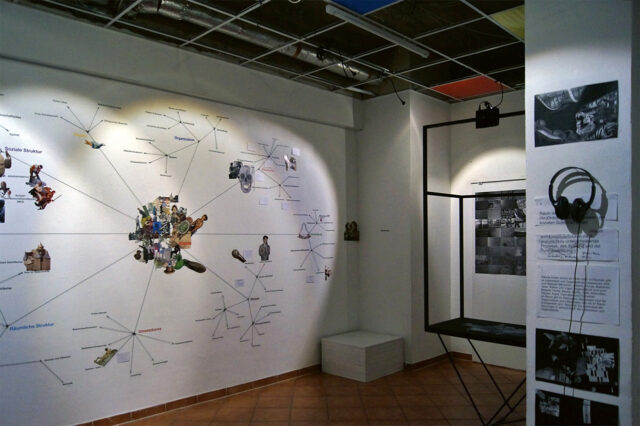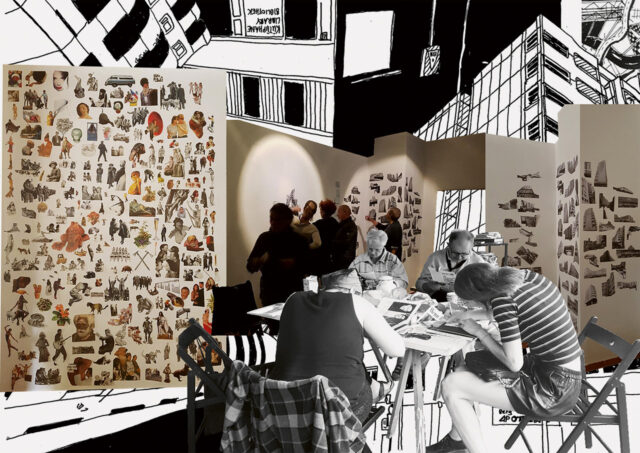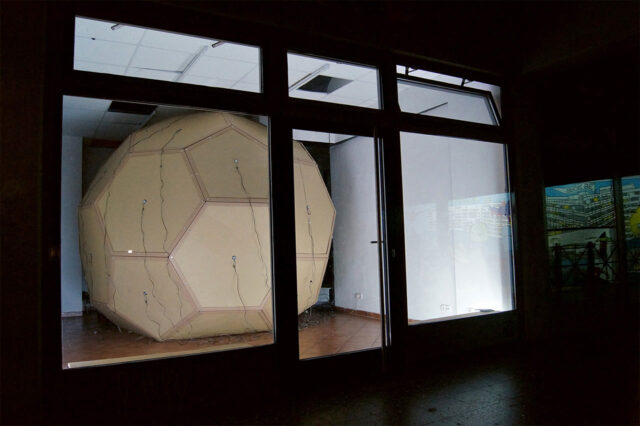2008
Adalbertstraße
4
Berlin
10999
Kotti-Shop ist ein experimenteller, Non-Profit Kunst- und Projektraum, der 2008 gegründet wurde. Das Besondere am Kotti-Shop ist aber neben der Vielschichtigkeit der Aktivitäten seine Rolle im Kiez und starke Verbindung zur Nachbarschaft. Er ist ein spielfreudiger Experimentierraum, ein Bezugs- und Aktivitätsraum gerade auch für viele Kinder im neuen Kreuzberger Zentrum. Der Kotti-Shop ist nicht nur Projektraum innerhalb seiner festen Architektur, sondern zugleich Ausgangspunkt von größer angelegten, künstlerisch-kollaborativen Projekten im In- und Ausland.

Forms of Negotiation, 2013, Foto: Stefan Endewardt

Stefan Endewardt, Mapping the Common Ground, Collage

Das Gefängnis in mir, Foto: Stefan Endewardt